Related Research Articles

Princess Anni-Frid Reuss, Dowager Countess of Plauen, known by her birth name or simply as Frida, is a Swedish singer who is best known as one of the founding members and lead singers of the pop band ABBA. Born in Bjørkåsen (Ballangen), Norway, to a Norwegian mother and a German father, she grew up in Torshälla, Sweden, and started her first solo career there, as a jazz singer in 1967, through a talent competition called New Faces.
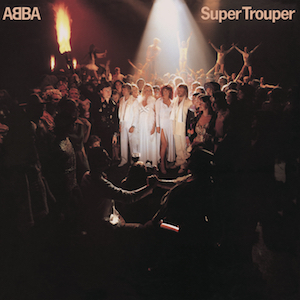
Super Trouper is the seventh studio album by the Swedish pop group ABBA, released on 3 November 1980. It features the No.1 singles "The Winner Takes It All" and "Super Trouper". The album became the biggest-selling album of 1980 in the UK.

The Visitors is the eighth studio album by Swedish pop group ABBA. It was released on 30 November 1981.
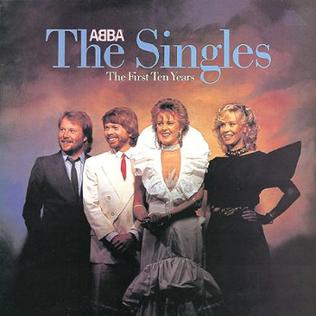
The Singles: The First Ten Years is a double compilation album by Swedish pop group ABBA, released in November 1982.

Gracias Por La Música is a Spanish-language album by Swedish pop group ABBA, released in Spain on 5 April 1980 and Latin America on May 10. Gracias Por La Música was originally released due to the unexpected surge in popularity for the group in Latin American countries such as Mexico and Argentina after the release of the Spanish-language versions of "Chiquitita" and "I Have a Dream" in 1979. These tracks were both released as singles and went on to become big hits. Encouraged by this success, the band therefore decided to record another eight tracks in Spanish and release a full-length album especially for the Latin American market. The album was also released in ABBA's native Sweden on June 23, and in Japan on July 21 after ABBA played eleven successful concerts earlier in March.

Something's Going On is the third solo album by Swedish singer Anni-Frid Lyngstad (Frida), one of the founding members of the Swedish pop group ABBA, and her first album recorded entirely in English. Her previous two albums had been recorded in Swedish. Recorded in early 1982 during the final months of ABBA, the album was released in September of that same year.
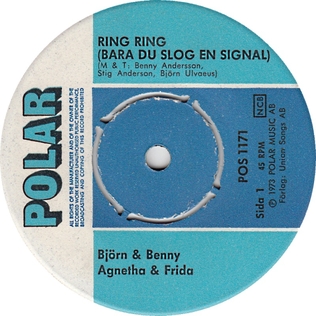
"Ring Ring" is a song by Swedish group ABBA, released as the title track of their 1973 debut album. The single gave the group their big break in several European countries (although the rest of Europe, North America and Australia would be introduced to ABBA the following year). The song was written in Swedish by Benny Andersson and Björn Ulvaeus, along with their manager Stig Anderson, with an original title of "Ring Ring (Bara du slog en signal)" ("Ring Ring (If Only You Called)"). Translation into English lyrics was helped by Neil Sedaka and his collaborator Phil Cody. The Swedish version reached No. 1 in the Swedish charts.
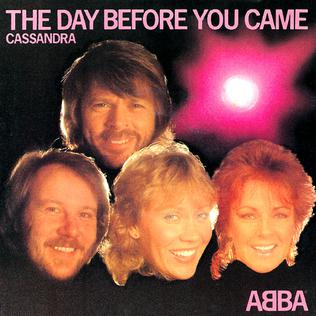
"The Day Before You Came" is a song recorded by Swedish pop group ABBA, released in October 1982 as the lead single from the compilation album The Singles: The First Ten Years.
"Intermezzo No. 1" is an instrumental track from Swedish pop group ABBA's self-titled third album, released in April 1975. It was the first of only two tracks by the group not to contain lyrics; the other was the title track of their 1976 release, Arrival. It is the only purely instrumental ABBA song however, as Arrival includes "a static layer of rich harmony vocals". On the cover, the song was credited as "Intermezzo No.1 featuring Benny Andersson".
"Dum Dum Diddle" is a song by ABBA, released on their 1976 album Arrival. In 1977 it was released as a promo single in Argentina on the RCA label.
"Like an Angel Passing Through My Room" is the closing track on ABBA's 1981 album The Visitors. It was written by Benny Andersson and Björn Ulvaeus.
"The Piper" is a track from the 1980 album Super Trouper, by Swedish pop group ABBA. The song is loosely based on the famous story of The Pied Piper of Hamelin, but lyricist Björn Ulvaeus cites the novel The Stand by Stephen King as a source of inspiration. It is regarded by some ABBA fans as being very different from the more mainstream songs they had recorded until this time. In particular, the dark lyrics dealing with the seduction by fascistic leaders and a somewhat medieval sound are not seen in their earlier songs. It is also the only ABBA song where a part of the refrain is in Latin, and has gained a small cult following among ABBA fans.
"I Saw It in the Mirror" is a song by Swedish pop band ABBA, released on their 1973 album Ring Ring.
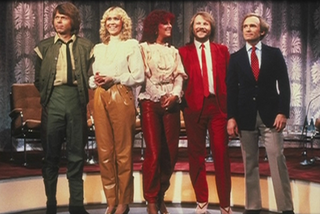
Dick Cavett Meets ABBA is a 1981 television special featuring the Swedish pop group being interviewed by the American television personality Dick Cavett. ABBA also took to the stage, performing nine songs in a so-called "mini-concert". A one-off broadcast was filmed and produced by Sveriges Television (SVT) in Stockholm, Sweden and broadcast 12 September 1981 as "Dick Cavett Meets ABBA".
"One Man, One Woman" is a song by ABBA, released on their 1977 album ABBA: The Album. It is that album's third track after "Eagle" and "Take a Chance on Me". Composed by Benny Andersson and Björn Ulvaeus, it has appeared on several compilation albums over the years, such as 1998's Love Stories and 2012's The Essential Collection.
"Me and Bobby and Bobby's Brother" is a song by ABBA, released on their 1973 album Ring Ring.
"What About Livingstone?" is a song by ABBA, released on their 1974 album Waterloo.
"My Mama Said" is a song by ABBA, released on their 1974 album Waterloo. It was written by Benny Andersson and Björn Ulvaeus.
"Hole in Your Soul" is a rock 'n' roll song by ABBA, released on their 1977 album ABBA: The Album. The song was a reworking of "Get On The Carousel", a number featured in the mini-musical The Girl with the Golden Hair, written by the group for their 1977 concert tours.
References
- ↑ Palm, Carl Magnus (1 September 2000). From Abba to Mamma Mia!: The Official Book. ISBN 9780823083176 . Retrieved 11 March 2014.
- ↑ Tobler, John (4 January 2012). Abba - Uncensored on the Record. ISBN 9781908538239.
- ↑ Palm, Carl Magnus (1 September 2008). Bright Lights Dark Shadows: The Real Story of Abba. ISBN 9781847724199.